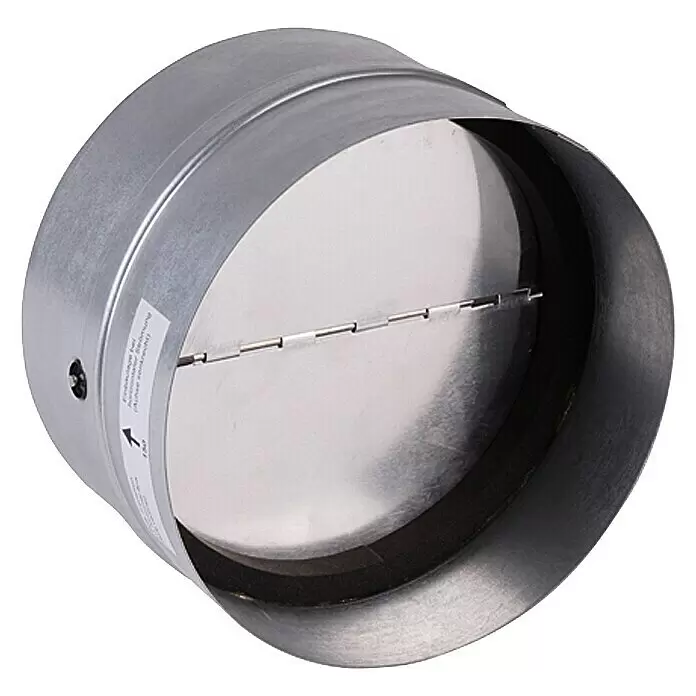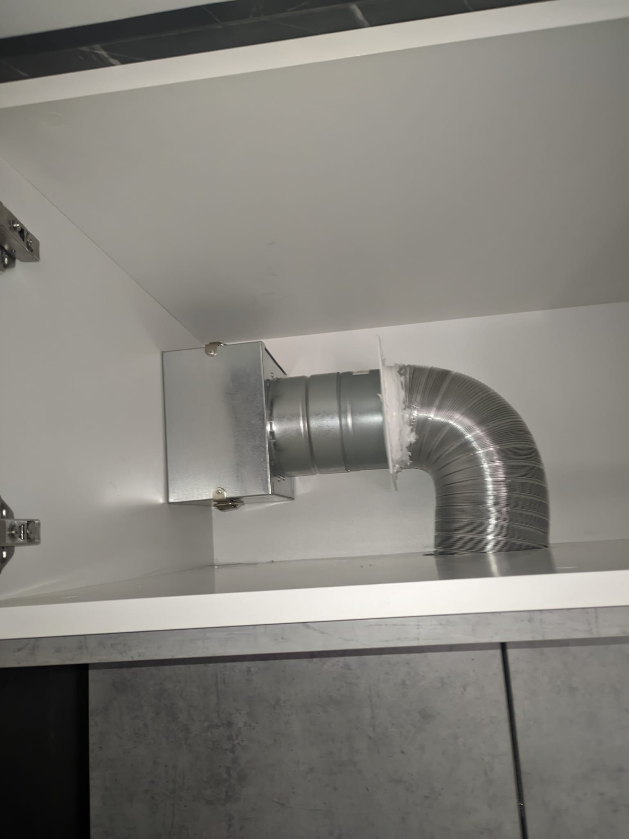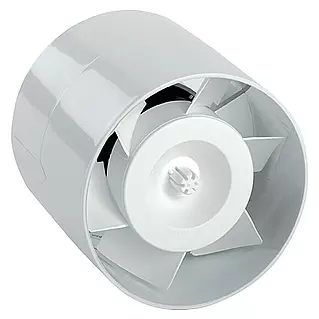Hey peeps, I moved to a new appartment and my kitchen hood is connected to the same pipe (chimney) as hood from appartment below. The issue is smell coming from our hood when neighbour is cooking.
I was thinking about some kind of sensor (air flow or humidity or smell?) that can detect when neighbour is cooking and then HA would turn on our hood at the lowest speed.
I have no clue what kind of sensor would be suitable. I also need to figure out how to start our hood with HA (hacking with relay or buying some kind of smart kitchen hood is acceptable). Our kitchen hood is just regular Faber with 4 position switch for selecting fan speed.
Anyone have idea how to solve that issue? What sensor would be best for that?
Note that I have already installed 1-way valve (not sure whats the correct english word) and 3 different filters, but still sucks
Edit: I got some things going on, cant replay to all comments today and probbly tomorrow. Thank you all for input, Ill come back asap
My first thought would be an air quality sensor but I’m not sure how sensitive they would be to food smells. I’ve never used one but there are plenty of examples online.
A fallback would be a timer, if you know when your neighbor usually cooks, you could turn your fan on during those times with some buffer.
They are plenty sensitive enough usually. Mine Ikea one definitely knows when we are cooking, even when the hood is on.
Which one do you have? Sounds promissing
This one: https://blakadder.com/vindriktning-tasmota/
But the new one that is ZigBee OOTB is probably better
Can confirm these are very sensitive. Mine is the other side of the house and picks up when we’re cooking
Thank you, Ill check it out
Is it common for apartments to have shared extractor ducts? I’ve never heard of a setup like this before, and it sounds like both a pain in the arse and a potential safety issue.
Controlling the kitchen fan is probably the easier bit. Depending on the design of the hood, you might be able to control it with a smart outlet or relay. Turn the hood’s switch to always on and control it with the relay. The difficult bit would be sensing when to turn it on.
Cooking will often produce VOCs, and VOC sensors are easy to obtain, but they are also have other sources that are likely in your own apartment. Maybe try using temperature and humidity sensors int the duct to activate the fan when there is elevated temperature and humidity inside the duct?
Is it common for apartments to have shared extractor ducts?
No, but happens in crap countries like Croatia. Its sad, but I have to deal with it.
Turning on hood with relay like that would make it difficult to use when we are cooking (cant set the speed and need some kind of switch available). I was thinking I should solder relay on lowest speed, but that might cause additional issues.
Temp and humidity might work, but im not completely sure since its quite small amount of air coming trought. I should probably get some sensor and see output
my apartment in the US doesn’t even have a vent to the outside. It just blows the exhaust through a filter and back into the room
The simple way is to use a fan or blower limit switch. The more complicated way would be to use a mass airflow sensor and something like a Raspberry Pi to control the speed of your hood vent.
The simple way is to use a fan or blower limit switch
Is this temperature controlled? Im not sure if temperature would be best since appartment is 2 floors below me and air might cool down? I might be wrong.
Mass airflow sensor sounds like it should work. Ill research more
Fan limit switches are airspeed based, at least the ones I used. They’re used to make sure things like furnace blowers are actually working, otherwise cut off the heat.
I wouldn’t bother with that, I’d instead look at it from the other point of view and think about fitting something like a simple vent gravity flap to your hood outlet, that is closed when your hood is off, and opens when your hood is on. I.e seals the vent to prevent smells.
Yeah I did that, but didnt help. Got the best one I could find (with rubber seal), but smell is going trought… Is there anything better available?

And it’s fitted properly? Is it completely closed when your neighbour has their extractor on?
Its closed unless my extractor is on! Its also intalled properly (axle in vertical pisition), but there are some tiny gaps around the hinge which obviously cant be sealed. Its fitted properly, with seals and silicon, and then I even duckt taped eveything just to be sure. It was not that bad with flap only, but then I installed filters (carbon + hepa + dust) and it improved even more. But still sucks hard sometimes
I would go around that hinge with a silicone cartridge, trying to close these tiny gaps - but use it sparingly, in order not to block the motion.
I would also look around it’s outside, where it’s mounted, if there are any possible gaps. There you can use the silicone generously.
I would go around that hinge with a silicone cartridge, trying to close these tiny gaps - but use it sparingly, in order not to block the motion.
I dont understand how can I do this without blocking the motion?
look around it’s outside
Rubber seal (on filter side), silicone and duckt tape is what I used to exclude that. There is also no smell in the cabinet so Im quite sure its coming from the hood
Habe you thought about a mechanical solution, e.g. back pressure flap?
Yeah, I have filter box and back preassure flap, but there might be something better that Im not aware off.

From let to right: filter box, flap, flexible tube
I also fitted carbon and heppa filter in the box
Then I would consider this flap defective, because you are actually experiencing the bad smell.
When your own device isn’t on, the flap should close and it should be (nearly) airtight.
It is nearly airtight IMO and its night and day difference with/without flap. It is easy to inspect how it moves when I remove filters from filter box. Im not excluding anything here tbh
It is insane and hard to believe, but its easy to guess what meal my neighbour is preparing while it looks like there is no flow at all. After long cooking it becomes annoying especially with onnion or fish…
The other appartment installed 2 flaps with no difference… In our building I think all 3rd floor kitchens are connected to 1st floor, also 2nd to 4th floor are connected. 10 appartments on each floor means up to 40 appartments with the same issue. They have installed flaps to anyone who complained and no one is happy with results afaik.
I replaced mine with (probably) better build quality one, but there might exist even better flaps. Do you know any source in Europe for the best quality flaps. We wouldnt mind spending much more money if that can help
You’ve got two challenges here: automatically controlling the fan, and detecting a suitable trigger for an automation routine.
The very first thing I’d do, though, is see if the landlord can do anything about it before you do anything else. Free air flow between two units may be a fire code violation, or there may be a blockage further up the exhaust duct if the other fan is developing enough pressure to bypass your damper.
As for your question…
Controlling the fan is perhaps the easier of the two. A 4-speed fan switch most likely implements a muktivalue resistor with discrete values-- each ON position allows a different value of current to flow through the switch to the fan motor, thereby controlling the speed. There are wireless fan controllers out there, but they tend to be driven by RF or IR remotes, which CAN be incorporated into a home automation system, but it takes extra steps. I’m not really familiar with the options for operating those controls from a smart assistant, but others here might have better info than me.
Since you want the assistant to turn the fan on low, it might be possible to shim in a mini smart relay that can work with a rocker switch, like a Shelly 1 or similar, wired in series with the rocker switch. Then you can leave the fan on low while you are not using it, and allow the assistant to control it on demand. I don’t know how those switches interact with a multi position switch though, since they are looking for transitions of ON/OFF to energize or deenergize the load terminals. You’d need to research it more. And, of course, you’d be modifying the range hood wiring which might cause you other, nontechnical issues.
As for detecting a trigger condition, this is rather harder. The changes in temperature, humidity or airflow outside your range hood when the neighboring fan is operating will be slight, perhaps within the noise band for the sensor, so my may get false positives, or just not detect it reliably. If you could situate the sensor in the duct itself, then airflow may be a viable option, but again, that may violate code or terms of your lease somehow.
Detecting odors is an altogether different set of challenges. Most of the common gas sensors are looking for specific compounds, like carbon monoxide, carbon dioxide, methane, hydrogen sulfide, etc. Food odors generally only contain trace amounts of those sorts of compounds. Your neighbors would need to consistently cook dishes that offgas one of these detectable compounts, which themselves would need to infiltrate into your air space in sufficient concentration to be reliably detected. I’m not an organic chemist and I am not saying it can’t be done, but I wager a lot would have to be “just so” for your system to work as you describe it.
If it’s not too intrusive for you to do so, you might just consider leaving the fan on low through mealtimes, perhaps using one of the micro relay suggestions in a timer routine on your assistant.
Thank your for detailed comment.
Land lord is myself so cant do much about that part. Its a quite new building and lot of people share the same problem including the neighbour Im connected to. We also have active warranty and its against the law, but Im quite sure there is nothing we can do unfortunatelly. No free air flow after adding filter and flap, but yeah it looked like possible disaster.
I might dissasemble extractor to see possible way of mounting shelly 1 or simmilar switch in series with lowest settings position. Thats sounds prommissing tbh, but Ill first look what sensor is suitable. I am able to install sensor below where tubes meet, so all neighbours air will pass there. Just dont know what would be the most reliable.
Timer routine is not perfect since its far from silent even on the lowest speed
The simplest thing would be a pressure or airflow sensor hard-wired to the switch for the hood itself.
Also consider instead of a 1 way valve installing a damper that only opens when your range good is turned on.
Please explain more, both answers sound usefull, but not sure exactly what you mean. What kind of damper? Do you have example pic or link?
Wow links are super usefull, thank you a lot!Damper seems like it could seal way better than a flap, I think Ill contact Fantech
They’re pretty standard parts so don’t feel like you need to go with Fantech in particular, feel a little like I accidentally shilled for them a bit, just happened to be on their website (AFAIK they do make good stuff though). Glad that it helped and best of luck :)
Shove a thermocouple up the duct. When neighbor is cooking it will likely affect the temperature in the duct noticably. Use that as your fan trigger.
I should test if air temperature is high enough after 5-6 m of vertical travel. If you know any device that can do that please link. Unless you are talking about full DIY?
I’m talking full diy. It’s simple enough.
I’d say the probe would just need to be higher than the merge point of the ducts. I can’t imagine that’d be 5m.
You can get k type thermocouples with 2+m cables fairly cheaply. And esphome has a handy guide on how to setup a thermocouple input. https://esphome.io/components/sensor/max6675.html
Thank you
Sounds hard If you can’t hook into the neighbours stove or hood. Maybe detect if the hood of the neighbors is turned on through a windspeed sensor (these things that rotate). TBH this sound like you should just fix the mechanism/back flow valve that restricts the airflow coming in if your hood is turned off.
Not the best option, but still doable. Hooking into neighbours hood could be possible if I implement the same thing on both hoods since they want to solve the problem more than us. Its like 7m distance and I could guide the cable trough the tube.
TBH Id live to learn how to fix back flow valve or buy better one if it exists. The thing is, all valves simmilar to mine are not made to stop smell afaik. And hood is not strong enough for water tight valves, at least others told me that
Could you add a fan at the exhaust end to create an ever present, gentle, negative pressure to encourage the air to flow that way?
Acinfiniti makes duct fans that have a temperature sensor and when it detects the change in temperature it turns the fan on. I took one apart and used the sensor, pcb and fan in a different project without problems.
I could install this kind of fan

I was thinking about this, but feels confusing how to sync it with extractor fan. Not sure if it should be on or off while our hood is running, and would it reduce air flow too much. I dont think temp sensor is optimal for this, but I might be wrong. Some guys mentioned air mass and air quaility sensors which feels better I think






